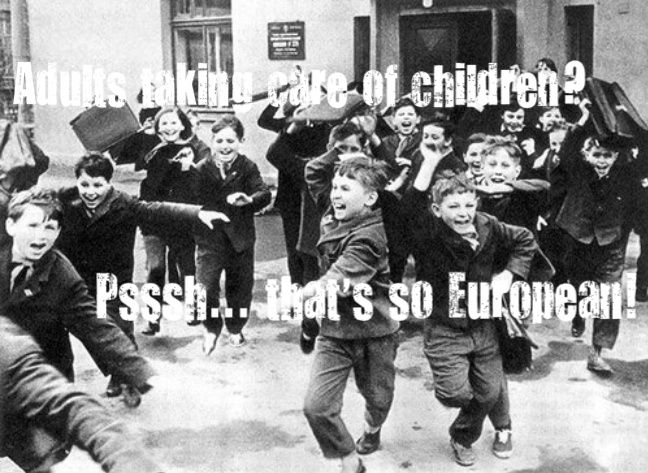
Alissa Quart has a
piece in
The New York Times today that looks at the financial burden, and often impossibility, of child care on American families. Given that one of my chapters tackles exactly this topic, it piqued my interest. Why would a book on the politics of pregnancy discuss post-birth child care? Because we put our son on a daycare waitlist five months into our pregnancy—
twenty months later, our number (a pessimistic 35) has not budged.
If parents are lucky enough to gain admission for their children, Quart discusses the crushing costs. Citing research from University of Massachusetts at Amherst sociologist Joya Misra, she writes that the cost of center-based day care surpasses one year of tuition at a public college in thirty-five states, as well as DC.
But it’s not only the price tag that has parents in despair. Despite resounding evidence that investing in young children’s care reaps huge social benefits, the United States is currently suffering from a severe scarcity of decent day care facilities. A survey conducted by the National Institute Child Health Development deemed only ten percent of facilities to be “high-care” nationwide and a recent cover story for The New Republic by Jonathan Cohn described the overall quality of day care in our country as “wildly uneven and barely monitored, and, at the lower end, Dickensian.”
An expose like this, on the dismal state of American child care, surfaces once every year or so. In general, comparisons are made to other industrialized nations, where states invest heavily in quality child care facilities and parents are even offered tax incentives if they stay home to take care of their own children, given that it is considered to save the state a huge sum of money.
Pamela Druckerman also discusses the American day care dilemma in her comparison between parenting in France and the United States, Bringing Up Bebe. As an American expat in Paris, she compares the quality of care that her first daughter receives from state run crèches with day care back home in the States.

